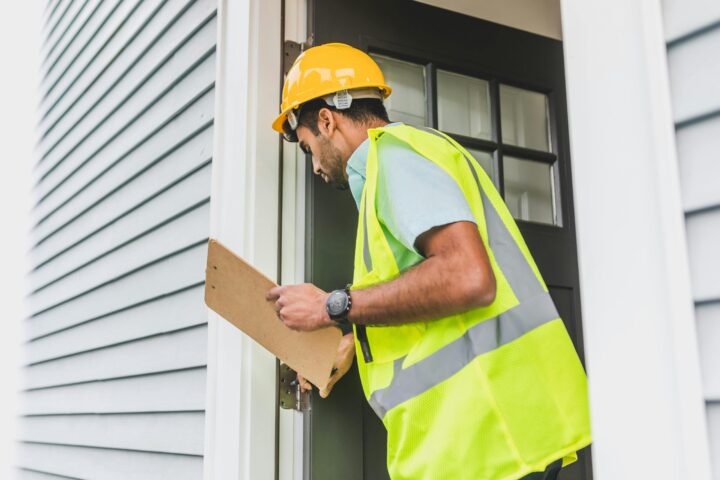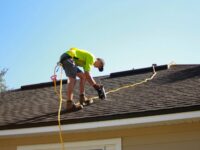The following contribution is from another author.
Landlords typically are the ones ensuring effective communication with tenants; however, this responsibility goes two ways. The landlord needs to make themselves available for communication, while the tenant has to use the provided channels to relate with the landlord or property manager.
This communication can include reporting leaky faucets, pest infestation, faulty electrical outlets, etc. Irrespective of the issue, tenants must be aware that they have the ability to report these problems and other worries effectively.
For this reason, this guide will reveal how to communicate rental maintenance issues as a tenant. This ensures that your stay, whether short or long, is a pleasant experience free of stressors.
Tenant Rights and Responsibilities Regarding Maintenance
As a tenant, you have several rights and responsibilities that allow you to request maintenance that ensures the property is in good condition. Bay Property Management Group in Atlanta suggests that tenants review their lease carefully to know what repairs are covered and ensure that landlords are fulfilling their obligations.
Knowing such details helps tenants know their rights and ensures both tenants and landlords fulfill their duties. For example, tenants are required to make minor maintenance and repairs, such as small repairs, to ensure a clean and safe environment.
On the other hand, landlords are required to address much bigger maintenance issues like plumbing, electrical problems, and structural repairs. If the landlord or property manager fails to do these, it can be grounds to take legal action for negligence.
4 Common Rental Maintenance Issues Tenants Face
“Different strokes for different folks” is a saying that, when applied here, means that not every issue will be considered a problem by some tenants. Fortunately, here is a brief overview of 4 common tenant problems that are worth reporting:
Plumbing
Plumbing issues are amongst the worst since failing to take care of them on time can seriously affect one’s quality of life. For example, a leaky pipe can damage the walls, floors, and other things, which can even worsen, resulting in mold growth.
It’s also worth noting that leaky pipes mean more water usage, which will reflect in your water bill, resulting in financial loss at the end of the day. But keep in mind that plumbing issues don’t end with leaky pipes; they also include:
- Clogged toilets, bathroom and kitchen sinks, showers, etc.
- Malfunctioning hot water system
- Leaky pipes and faucets
If you encounter any of these problems, ensure that you bring them to the attention of your landlord and have them resolved to prevent further damage.
Electrical Faults
Sometimes, electrical problems can be annoying, but in worse scenarios, they can lead to serious issues like fires. If you notice such issues as outdated, faulty, or damaged wiring, sparking or burning sockets, or non-responsive outlets, contact your landlord or property manager.
These faults can quickly go out of control and result in irreversible damage. They can also prevent you from having a pleasant experience, which is expected after paying for the lease. Therefore, the property manager should contact professionals to look at the issue, whether it was flickering lights or bright sparks.
HVAC Issues
Living in an enclosed space can become uncomfortable due to the difference in temperature, humidity, and air quality. The HVAC (Heating, Ventilation, and Air Conditioning) system helps to manage these factors and make the living space more comfortable.
So, in a situation where the HVAC system is faulty, tenants will feel more uncomfortable, and can even develop medical issues like allergies due to mold overgrowth.
Some signs of a faulty HVAC system include:
- Poor cooling
- Faulty compressor
- Clogged air filters
- Refrigerant leaks
- Faulty heater pilot lights
- Ductwork issues
It’s worth noting that a neglected HVAC system will also cause electricity bills to rise as these faulty parts draw more energy to be effective, leading to more electricity usage. So, regular inspections and fixes can save you money as a tenant.
Paint and Drywall Fixes
A rental property is supposed to feel attractive and comfortable, unfortunately, peeling paint inhibits this feeling of comfort and attraction. It makes the place appear unkempt, low-quality, and repelling.
These aren’t emotions one should associate with a space they rented, so if you notice paint and drywall issues, contact your landlord for a fix. Some examples to look out for include:
- Peeling paint
- Water stains
- Cracks and holes in the wall
- Severe stains
The landlord should be able to promptly arrange for the affected areas to be repaired, repainted, or cleaned, ensuring the place looks appealing and comfortable to you.
Keep in mind that these are just four examples of issues worth reporting. There are other noteworthy problems like pest infestation, smoke detector repair, roof leaks, appliance malfunction, and more.
As a tenant, it’s important to report issues immediately that make you uncomfortable and have the property manager make repairs.
Steps to Take When a Maintenance Issue Arises
So, what’s the next step to take when you notice an issue with the rental property worth reporting? Here’s what we recommend:
- Document the problem: Take photos and videos of the problem, ensuring there is sufficient evidence to present to the landlord when requesting repairs.
- Contact the landlord on time: Inform the property manager or company about the problem through the provided channels, such as email, call, or text. Ensure that the issue is clearly described and send a written report of the problem for a document to refer to in the future.
- Follow-up: If you don’t receive a response after two to three business days, send a follow-up message. However, ensure to be polite and only communicate the needed repairs and level of urgency.
- Prevent further damage: In situations like a water leak, you can employ some preventative measures to prevent water leaks and damage to your items by turning off the water supply to the affected area until repairs are made.
Note that irrespective of the issue or time of response, ensure that you are polite and straightforward, as these are necessary for effective communication.
Best Practices for Communicating with Your Landlord
As previously mentioned, as a tenant, you have the right to request repairs to improve your comfort at the rental property. To best communicate this need, here’s what we recommend:
- Describe the problem in detail
- Help your landlord understand by providing photos and pictures
- Provide suggestions to show you are proactive and willing to help solve the problem
- Ensure to be polite and respectful when making your demands
Following these tips and the ones before will promote effective and open communication, and open communication is key when handling maintenance problems with your landlord. These skills are essential for tenants and are just as important to remember if you’re ever renting your house to others.
Conclusion
These are the common issues tenants can encounter at a rental property, and fortunately, they have the right to request repairs. This right is based on the fact that comfort is one of the factors renters paid for, and failing to deliver on this contract is grounds for legal involvement.
However, despite this fact, it’s necessary to communicate effectively by being polite, explaining the problem in detail, and providing photos and videos as evidence. Also, ensure that you save all conversations in case you need to reference them for future purposes.
















